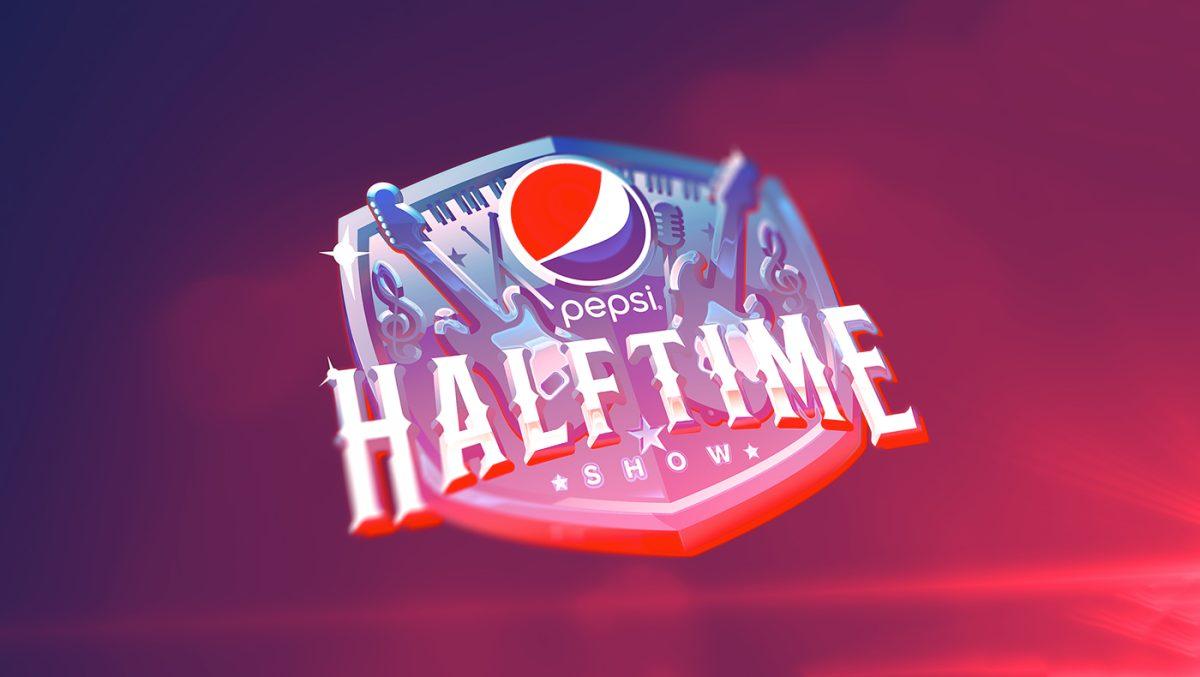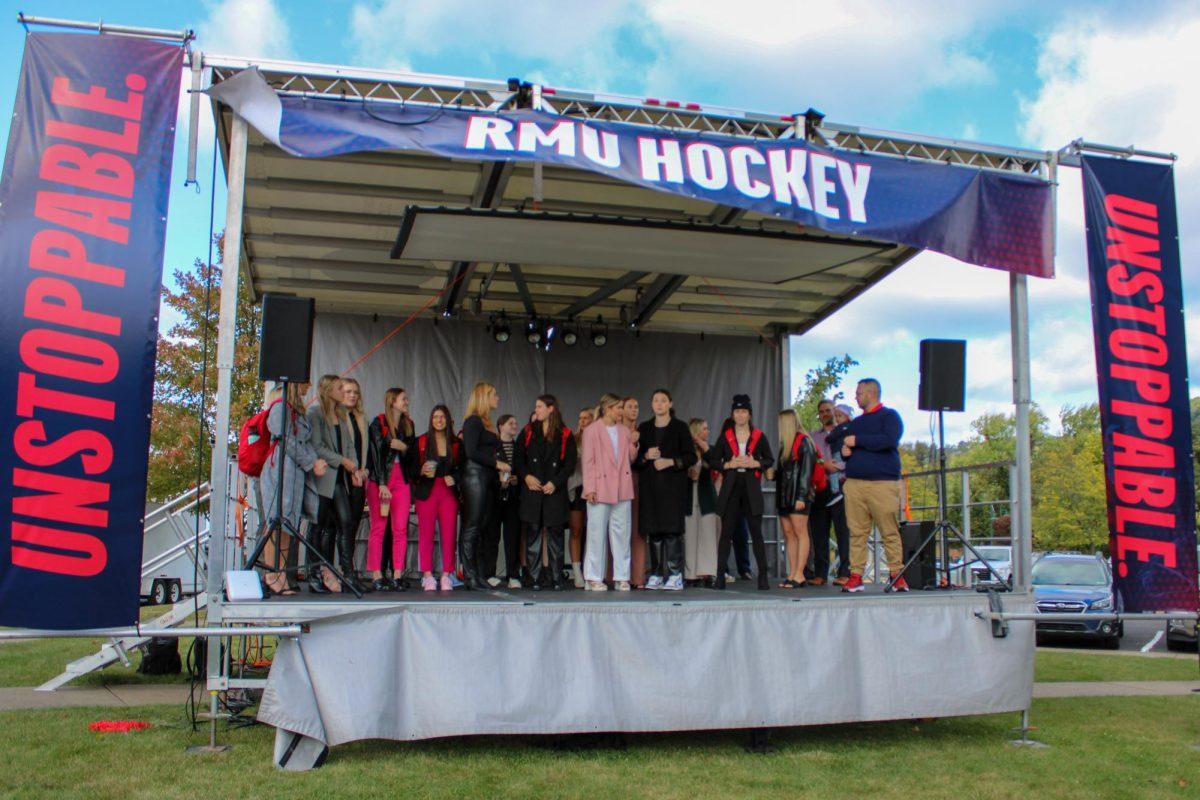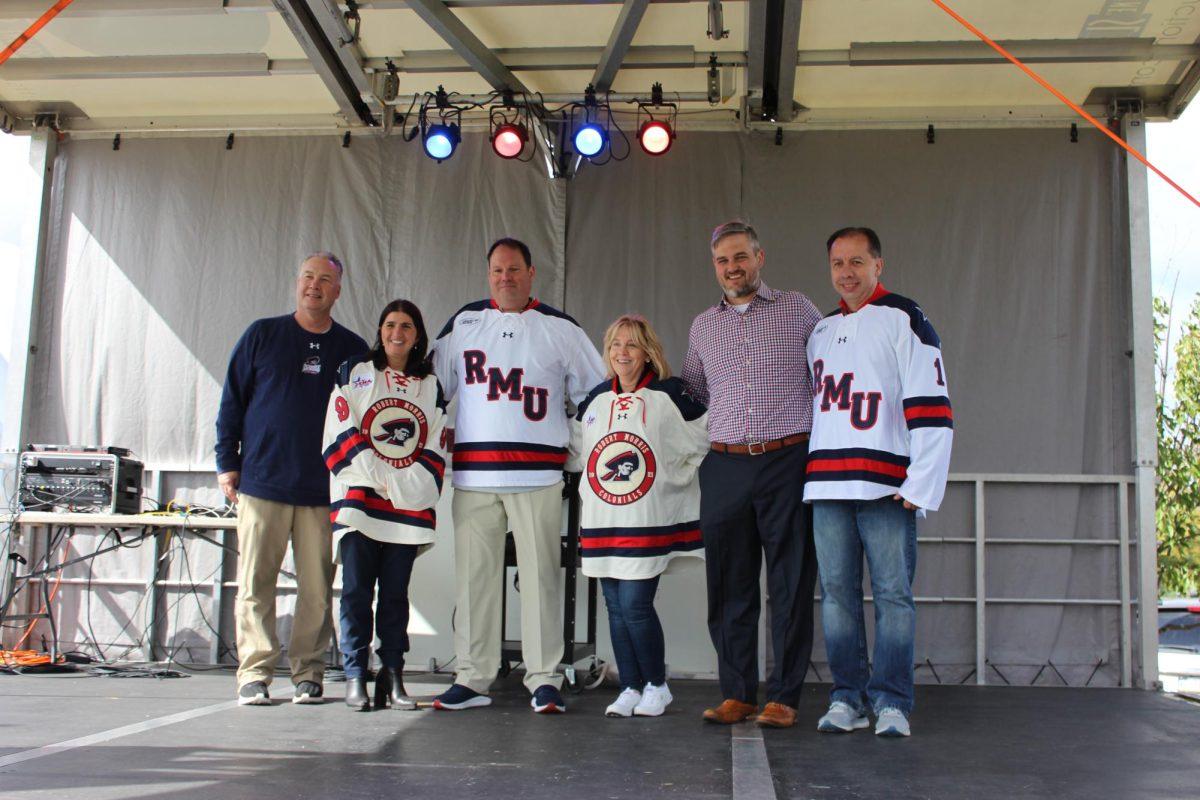“My first language was sign language,” said Roberta Labedda,
a sign language interpreter for RMU students.
During her thriving
years of childhood, English words were replaced with sign language.
“When I was younger,
I would point my finger to objects, and my parents would respond with a sign,”
Labedda stated.
Labedda grew up in a
household with two deaf parents and a deaf sister. Her older sister and she
were the only hearing children.
“My grandparents
could hear, and I watched a lot of Sesame Street,” said Labedda. Her
grandparents would help her turn the signs she learned into English words.
“I used to try and
teach my sister to speak in the backseat of the car,” Labedda said smiling. “I
would show her how to move her mouth to say words. She wasn’t able to actually
say them. I guess I was just trying to make her hear.”
Labedda has been an
interpreter all her life. She had to speak for her family everywhere she was.
“Sometimes it was
confusing, because I was a child and I didn’t understand these adult words so I
couldn’t always translate them,” she said. “I didn’t actually want to be an
interpreter. I went to school to be a medical lab assistant. I loved my job,
but the place eventually closed and I choose to interpret instead.”
At the time,
Labedda’s sign language was evaluated and she was certified in interpretation
and transliteration. Nowadays, it is necessary to have a degree.
“It wasn’t easy,”
Labedda said. “I was expected to [know] the lingo.”
Like English, different people and areas have
different lingos.
“I get to know the
people I interpret for.” Labedda said. “I like to have a conversation with them
and get a feel for the way they sign and then match it.”
There are two
different types of sign language, the American Sign Language (ASL) and the
Pidgin Sign English.
“ASL is its own
language.” said Labedda, “It has its own subject [and] verb order. Pidgin sign
English is a combination of ASL and spelled out English words.”
Labedda works
through Steel City Interpreters, which offers interpreters for both American
Sign Language and Spoken Languages.
“Before there was a
disability act, it was a fight to get an interpreter,” said Labedda.
Interpreters weren’t
required, therefore it wasn’t east to get one.
“My uncle was deaf
and he actually went through college without an interpreter,” Labedda
explained.
There are many
accommodations for hearing impaired students at RMU.
“We use
interpreters, student note takers, light scribe pens and notebooks, and the
Ubiduo.” said Tracey Gorell, assistant director in the Center for Student
Success. The light scribe pen and notebook is a combination that makes
reviewing notes much easier. The student note taker can use these to record the
notes that can then be transferred to a computer through the camera near the
tip of the pen. The pen also records the lecture and correlates the lecture to
the page the notes were taken on. The Ubiduo is a portable set of keyboards and
screens that acts as an instant messenger.
“There are still
road blocks,” said Labedda. “It’s a struggle to get an interpreter for funerals
and personal events. I normally just do it for them.”
She does not charge
for this service.
“I understand it’s
a struggle and they’re left with no choice,” she explained.
“I’ve realized not
to take anything for granted.” stated Lebedda.
She also talked
about the student she works with.
“I respect that he’s
striving in a college setting, and he doesn’t let anything get in his way.” she
said. “Everyone struggles, but anyone can overcome it.”








